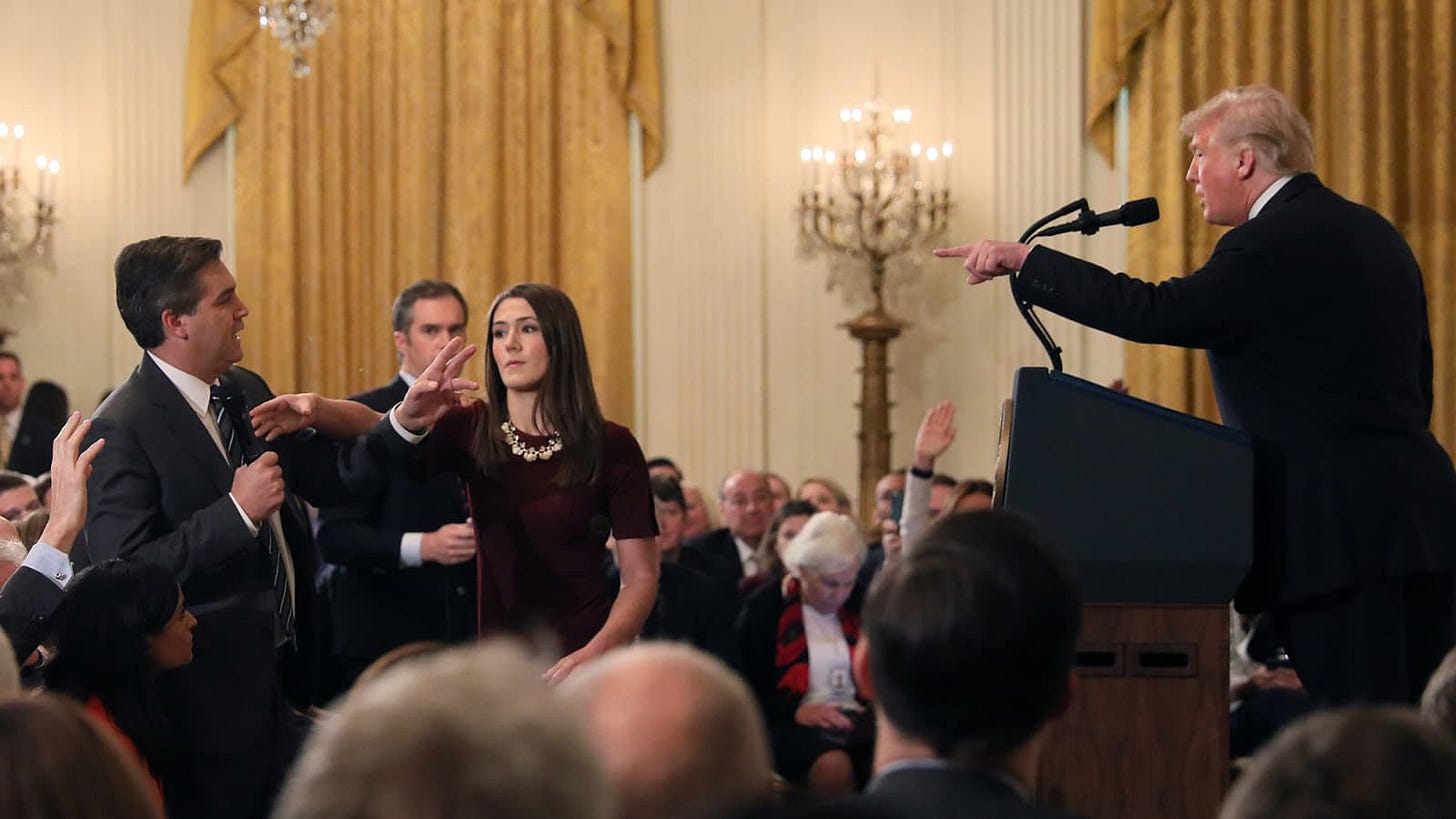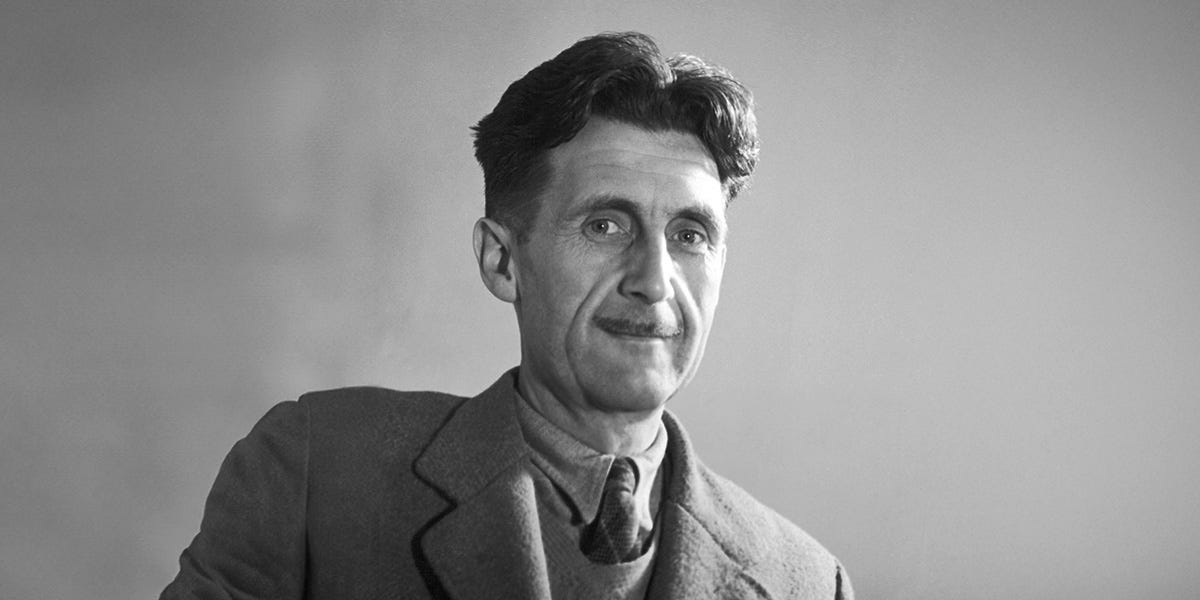What news media looks like if Trump gets his way
What happens when truth depends on loyalty
When Donald Trump faces questions he doesn’t like, they’re “nasty.” When a headline doesn’t praise him, it’s “fake news.” As president again, he’s gone beyond complaining. He’s talking about revoking broadcast licenses, punishing journalists, and silencing coverage that makes him look bad.
What we’re seeing isn’t new. It’s the oldest story in politics: leaders who crave loyalty eventually turn their anger on the press. The pattern shows up in every country that slides away from democracy. Authoritarianism doesn’t begin with soldiers in the streets (although we have those in 2025 USA). It begins with politicians deciding that criticism is fobidden.
Trump’s version of a “free press” is one that praises him freely. He doesn’t want scrutiny; he wants applause. And when journalists refuse to play along, he tries to make the public believe that truth itself is partisan. This is how every strongman redefines journalism until truth becomes a matter of loyalty.
In Russia, independent outlets were branded “foreign agents,” many ultimately forced to shut down. In Hungary, loyalists quietly bought out the country’s major newspapers and merged them into a single pro-government media foundation. In Turkey, hundreds of journalists were jailed for “insulting the president.” And in each case, before the crackdowns came, there was a period of mocking and delegitimizing that turned the press into an enemy in the public mind.
That’s where Trump and authoritarianism can be most effective. He doesn’t have to outlaw journalism. He just has to convince enough people that journalists are liars, and convince enough journalists that it’s not worth the risk of doing their job. Once that idea takes root, the rest follows easily. Reporters start getting death threats. Editors start playing it safe. And when real corruption surfaces, the public no longer believes the story.
This is what happens when a country forgets why a free press exists. Journalism isn’t supposed to flatter power; it’s supposed to question it. The job of the press is not to make leaders comfortable, but to make them accountable.
American history has seen flashes of this before. Richard Nixon kept an “enemies list” that included dozens of reporters. During the Red Scare, Joseph McCarthy smeared journalists as communist sympathizers to discredit their investigations. Even Franklin Roosevelt, admired by many, used the power of radio to speak directly to the public and bypass newspapers he considered hostile. Each of these moments revealed the same instinct: the desire to control the narrative.
The difference now is the scale. Social media gives modern authoritarians tools their predecessors could only dream of. They don’t have to silence journalists if they can flood the zone with noise. Algorithms do the work of censorship invisibly, burying credible reporting under an avalanche of outrage, distraction, and lies. You don’t need to shut down the press if you can drown it.
Trump has mastered that game. He doesn’t need the state to censor; he uses chaos itself as a weapon. One minute he’s promising to investigate “corrupt media,” the next he’s amplifying conspiracy theories that make journalism look irrelevant. The goal is confusion, not clarity. When no one knows what’s real, the loudest voice wins, and he’s always the loudest voice.
Meanwhile, corporate media is poorly equipped to fight back. Its survival depends on advertising revenue and access to powerful people. When those in power threaten to revoke licenses, sue, or blacklist reporters, networks don’t rise to the occasion. They hedge. The instinct inside boardrooms isn’t defiance; it’s damage control.
This is the quiet way democracies erode. Not through mass arrests or burned printing presses, but through a slow and cautious retreat. Reporters start pulling punches. Editors start “balancing” truth with propaganda. Before long, the watchdog has been house-trained.
That’s why George Orwell’s line still cuts so deep:
“Journalism is printing something that someone does not want printed. Everything else is public relations.”
By that standard, large parts of the modern media landscape have already surrendered. When the pursuit of “neutrality” becomes a substitute for truth, journalism stops serving the public and starts serving power.
Independent media fills some of that vacuum. Without advertisers or corporate boards to answer to, independent journalists can still say what they believe, report what they find, and question whoever’s in power. They don’t need permission to tell the truth.
That freedom, though, comes with vulnerability. There are no legal departments to handle frivolous lawsuits. No network lawyers to back them when the government pushes back. No multimillion-dollar budgets to fight algorithmic suppression. Independent outlets survive by the strength of their audience alone.
And that’s precisely what makes them a threat to authoritarians. They can’t be bought, pressured, or silenced through the usual channels. The only way to destroy them is to cut them off from the public, to make them invisible. You can already see it happening online: independent outlets pushed out of recommendation feeds, demonetized, labeled as “unsafe” for advertisers. Censorship in the modern era doesn’t always look like censorship. It looks like obscurity.
History tells us that authoritarian control over media rarely arrives overnight. It creeps in through intimidation, ridicule, and exhaustion. By the time the public realizes what’s happened, the space for truth has already narrowed. That’s why vigilance matters most before the crackdown, not after it.
The press isn’t perfect. It never has been. But a flawed press is still infinitely better than a controlled one. Once a leader decides that only positive coverage is acceptable, the line between democracy and dictatorship begins to fade.
Make no mistake: Trump’s constant demand for loyalty isn’t about ego. It’s about control. He understands that information is power, and that every independent journalist, every inconvenient question, is a small act of resistance.
In the end, the survival of a free press doesn’t depend only on reporters. It depends on the public’s willingness to stand behind them. Supporting independent journalism isn’t about generosity. It’s about self-preservation. If the press goes quiet, the country follows.
Trump’s dream is a country where only flattery gets airtime. The defense against that isn’t silence or cynicism. It’s more voices refusing to play along.
If you value journalism that still prints what power doesn’t want printed, subscribe to our Substack. It’s one small but meaningful way to keep the truth alive when it’s needed most.
We’re reaching over 100 million people every month across YouTube, podcasts, Substack, and beyond. But algorithms can change. Platforms can fold. And when that happens, this newsletter is how we stay connected.
If you’re not yet a paid subscriber, please consider joining.
If you’re already paid on one platform, consider supporting us on both Substack and our website.
You can subscribe on our website and right here on Substack.
And if you’re really on fire, consider gifting a subscription—we’ve got thousands on our waiting list ready to read, watch, and fight back.
MAGA cancel culture is real—and it’s coming for the press. But they can’t cancel what they don’t control.
Let’s keep building.
—David
PS: Can’t contribute right now? No problem. You can support us for free by subscribing on YouTube, listening to our audio podcast on Spotify or Apple Podcasts, or become a free subscriber to this very Substack. Every bit counts.





Regarding lack of lawyers: Actually the Administration is currently suffering a significant lack of lawyers, and I have a hunch many of those who were previously employed at the DoJ may have motivation to provide services to independent media in these dark times.
Whatever it takes a subscriber i am not going anywhere,my familys' and my service will not be stolen by this deadbeat POTUS and his fellow bootlickers and his mundane braindead voters/followers.